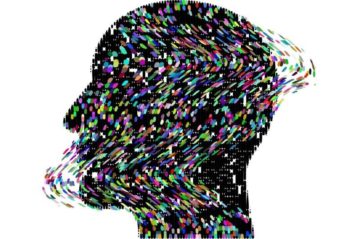From Phys.Org:
 Inside the brains of people with psychosis, two key systems are malfunctioning: a “filter” that directs attention toward important external events and internal thoughts, and a “predictor” composed of pathways that anticipate rewards. Dysfunction of these systems makes it difficult to know what’s real, manifesting as hallucinations and delusions. The findings come from a Stanford Medicine-led study, published April 11 in Molecular Psychiatry, that used brain scan data from children, teens and young adults with psychosis. The results confirm an existing theory of how breaks with reality occur. “This work provides a good model for understanding the development and progression of schizophrenia, which is a challenging problem,” said lead author Kaustubh Supekar, Ph.D., clinical associate professor of psychiatry and behavioral sciences.
Inside the brains of people with psychosis, two key systems are malfunctioning: a “filter” that directs attention toward important external events and internal thoughts, and a “predictor” composed of pathways that anticipate rewards. Dysfunction of these systems makes it difficult to know what’s real, manifesting as hallucinations and delusions. The findings come from a Stanford Medicine-led study, published April 11 in Molecular Psychiatry, that used brain scan data from children, teens and young adults with psychosis. The results confirm an existing theory of how breaks with reality occur. “This work provides a good model for understanding the development and progression of schizophrenia, which is a challenging problem,” said lead author Kaustubh Supekar, Ph.D., clinical associate professor of psychiatry and behavioral sciences.
The findings, observed in individuals with a rare genetic disease called 22q11.2 deletion syndrome who experience psychosis as well as in those with psychosis of unknown origin, advance scientists’ understanding of the underlying brain mechanisms and theoretical frameworks related to psychosis. During psychosis, patients experience hallucinations, such as hearing voices, and hold delusional beliefs, such as thinking that people who are not real exist. Psychosis can occur on its own and is a hallmark of certain serious mental illnesses, including bipolar disorder and schizophrenia. Schizophrenia is also characterized by social withdrawal, disorganized thinking and speech, and a reduction in energy and motivation.
More here.
